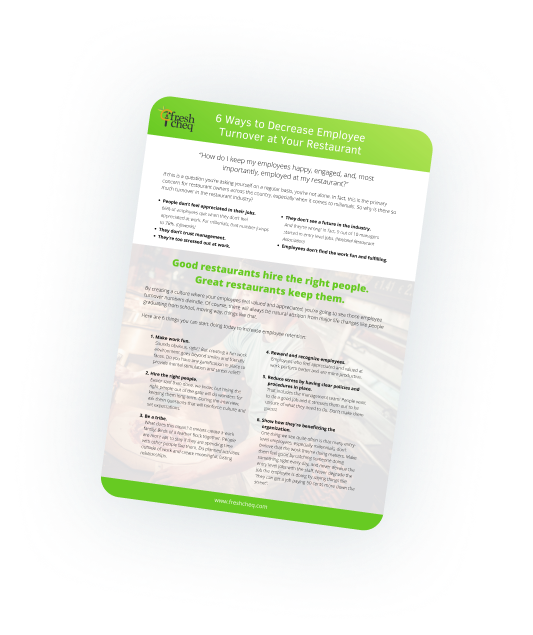It only takes one food safety oversight for your restaurant to fail an inspection or get a guest sick. Food safety breaches could happen to any restaurant.
The quality of your restaurant’s food safety should only be measured by how well your staff performs with a full restaurant when in the weeds.
How Common Are Food Safety Oversights?
In September, 2018 an E. coli contamination recall removed more than 130,000 pounds of ground beef from market. Several times throughout 2018, there were widespread investigations and recalls of romaine lettuce because of E. coli contamination that made several consumers sick. Also in 2018, contaminated produce was sold and served at Panera Bread, McDonald’s, and Chipotle. Hundreds of people got sick and some who consumed the tainted food even died.
Dangerous restaurant food poisoning pathogens can cause outbreaks through multiple factors. In some cases, food is contaminated on the farm or during transport to your restaurant. In many cases, human negligence contributes to many foodborne illness outbreaks. Cross-contamination, such as using the same cutting boards and knives for raw and cooked foods, will transfer harmful bacteria to the ready-to-serve foods. When staff does not adhere to time-temperature standards bacteria can grow and make people sick.
According to the CDC, there are 76 million foodborne illnesses in the United States each year, with 325,000 requiring hospitalizations, and
5,000 resulting in death. Foodborne illness is 100 percent preventable if all parties are involved and follow best food safety practices. As a
restaurant owner, putting consistent and well enforced food safety systems in place in your restaurants is a good place to start.
The Role of the Restaurant Owner
Many restaurant owners are in denial about the seriousness of food safety and how dangerous it can be to guests. While some restaurants,
like our top FreshCheq customers, pride themselves on following impeccable food safety systems each and every day, for other restaurant
owners, food safety is an afterthought. No one thinks that a food safety issue will destroy their restaurant- until it does.
Examples of staff cheating on food safety inspections has become another widespread and documented issue within the restaurant industry.
When employees are not trained to be invested in food safety, they may feel too busy (or lazy) and skip the line checks or cooling logs.
“Pencil whipping,” or “checking the boxes” is commonplace and with paper logs and checklists, accountability is impossible. FreshCheq’s mobile app holds employees accountable and guarantees that logs are being completed. Restaurant owners who use FreshCheq are dramatically reducing
the risk of a foodborne illness occurring at their restaurant location.
Consistency is Everything
Food safety systems are only effective if they are followed by everyone and everyday. Poor food safety culture, poor training, and
operational inconsistency is typically to blame for restaurant food safety breaches. Many restaurant owners and managers are consumed with
rising costs, increasing competition and other overarching concerns and the logistics of day to day operations overshadow the focus on food safety. Too often, restaurant owners think they’re exempt from food safety scares. They don’t set proper standards or create a culture of
food safety for their staff to follow. It only takes one food safety misstep to sicken guests and destroy a restaurant’s reputation.
Restaurant Food Safety Solutions
The good news is that there are innovative new tools and technologies today that can help prevent foodborne illnesses. Restaurants and other
food businesses are smart to utilize these new tools to create a culture of food safety.
Many restaurant owners resist change, fearing that new technology will be too expensive, time-consuming, and overwhelming. When owners
resist embracing technology that will improve food safety practices, they miss an important opportunity to keep their guests safer. The cost and burden of implementing the new technology is far less than that of a food safety breach.
For more information about how to create a culture of food safety within your restaurant, contact us for your free demo.



